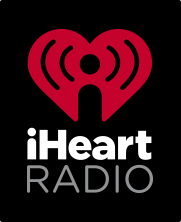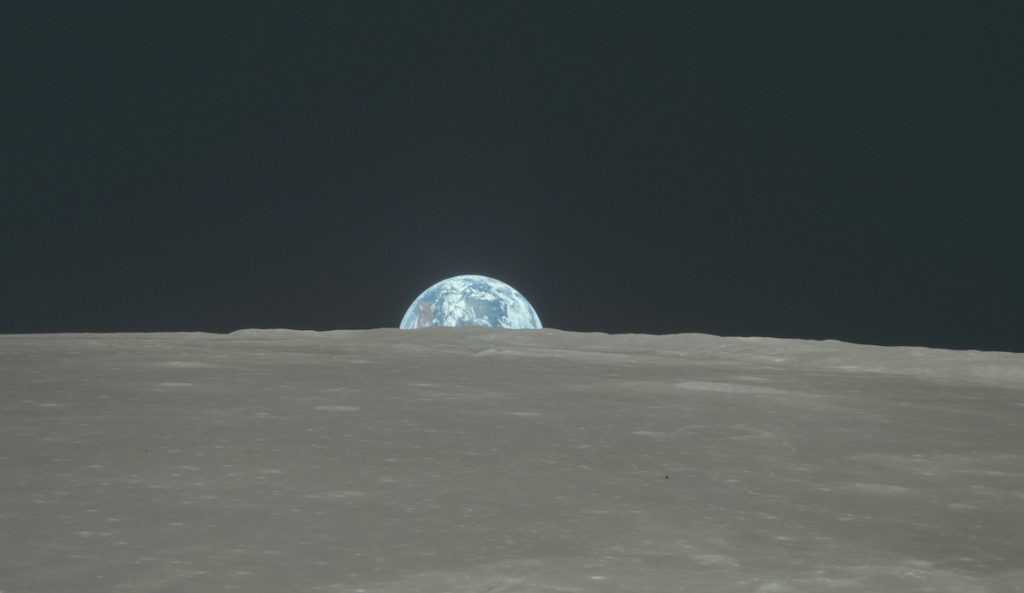
Source: NASA
50 years ago today the Apollo 11 spacecraft touched down on the Earth’s Moon, marking this day in history, 1969, as one that changed our world and our future, forever. Not only had humans left the planet’s atmosphere, but touched down on another surface some 384,400km away, and managed to return safely.
As many people know, Honeysuckle Creek NASA Tracking Station and the Parkes Radio Telescope were crucial in transmitting the footage of the moon landing to the world. It is said that six hundred million people, one fifth of humanity at the time, tuned in to watch history be made.
Radio transmission from the astronauts’ space suits came through Honeysuckle Creek and then onto NASA Mission Control in Houston, Texas. This was the only connection that NASA had with the astronauts once they had stepped off the landing module. Honeysuckle Creek also transmitted the first 8 and a half minutes of the Moon landing, due to strong winds disturbing the signal at Parkes. NASA switched the vision to Parkes when the quality improved, and the rest is history.
Vintage FM’s Drive time announcer John Bond was in high school when it all happened and remembers watching it on a tiny black and white TV.
Earlier this week he spoke to Todd Barber, Senior Propulsion Engineer at NASA’s Jet Propulsion Lab. Todd’s work in leading the Cassini spacecraft mission from 1997 until 2017, getting the Curiosity Rovers to Mars and now continuing the Voyager legacy as it enters it’s 42nd year (Now in interstellar space) makes not only his CV, but his life, sound pretty cool.
John asked Todd how space exploration makes a difference to us here on Earth.
What we’ve found, and this is amazing to me, We understand the Earth far better once this whole business of planetary exploration began. Sometimes you need the perspective of seeing how other planets do it and what the differences are to appreciate how the home planet works.
One classic example was studying the temperatures of Venus. Where Venus was hotter than Mercury even though it was further from the sun, a huge surprise, but finally when we got there with spacecraft, we started understanding the data, the greenhouse effect was discovered.
John also asked Todd what he thought the legacy of Apollo 11 was.
For me, if I look back in the 60’s in the US it was a very tumultuous time, there was a lot of political turmoil and unrest – perhaps not so different than other times. But not only the US, people on different sides, everybody where they were, they stopped for a minute. And this wasn’t the US sending a man to the moon – two men to the moon – this was humanity. This was an achievement of humans on planet earth. So the whole world I think got a little smaller.
It was predated on Christmas Eve of 1968 when Apollo 8 flew around the moon, looked back and saw that beautiful, fragile earth and read from Genesis and the Old Testament on Christmas Eve and it’s said that’s the picture that launched a thousand environmentalists. So I think it made us fragilely and painfully aware of how precious and beautiful our home planet is.
So to me, that’s the two legacies, this brief moment of world peace and this revelation that really we are on a small fragile world.
Hear the full 21 minute interview below:
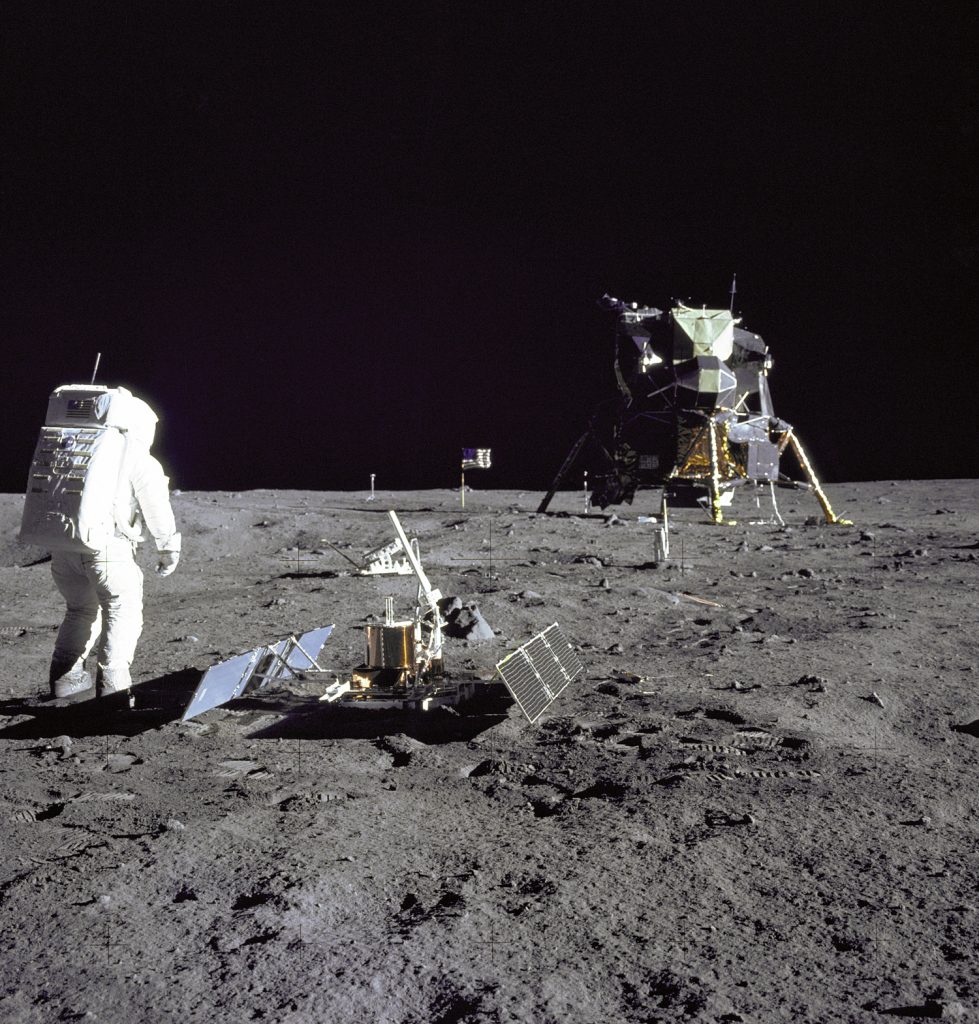
Source: NASA
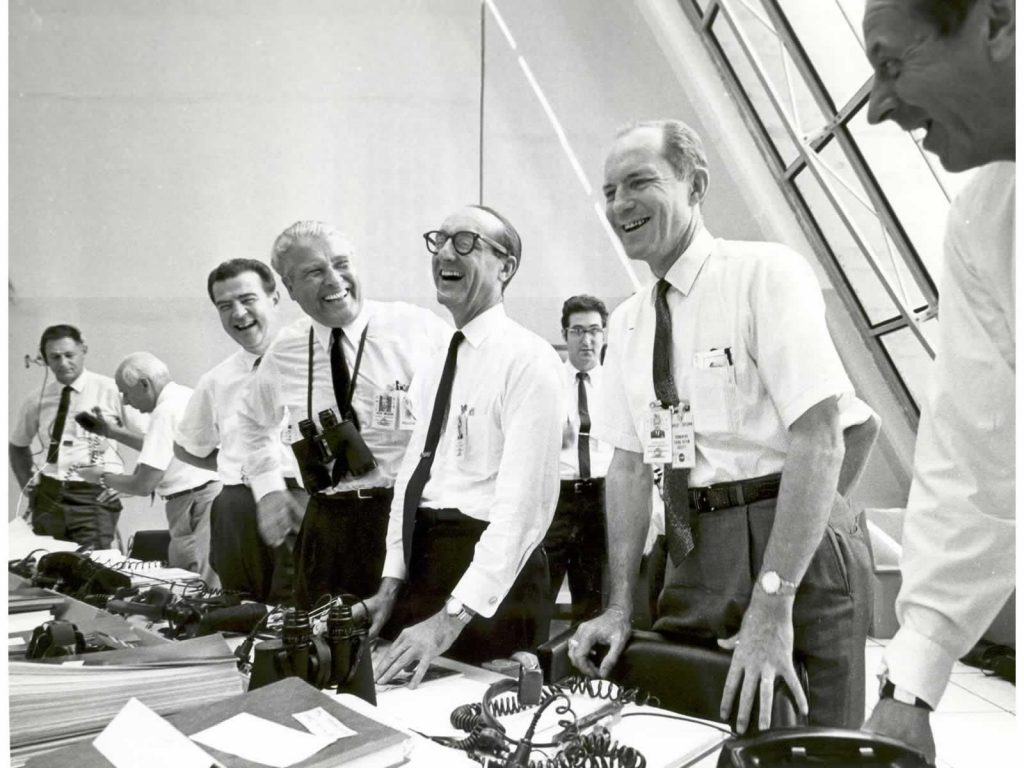
Source: NASA
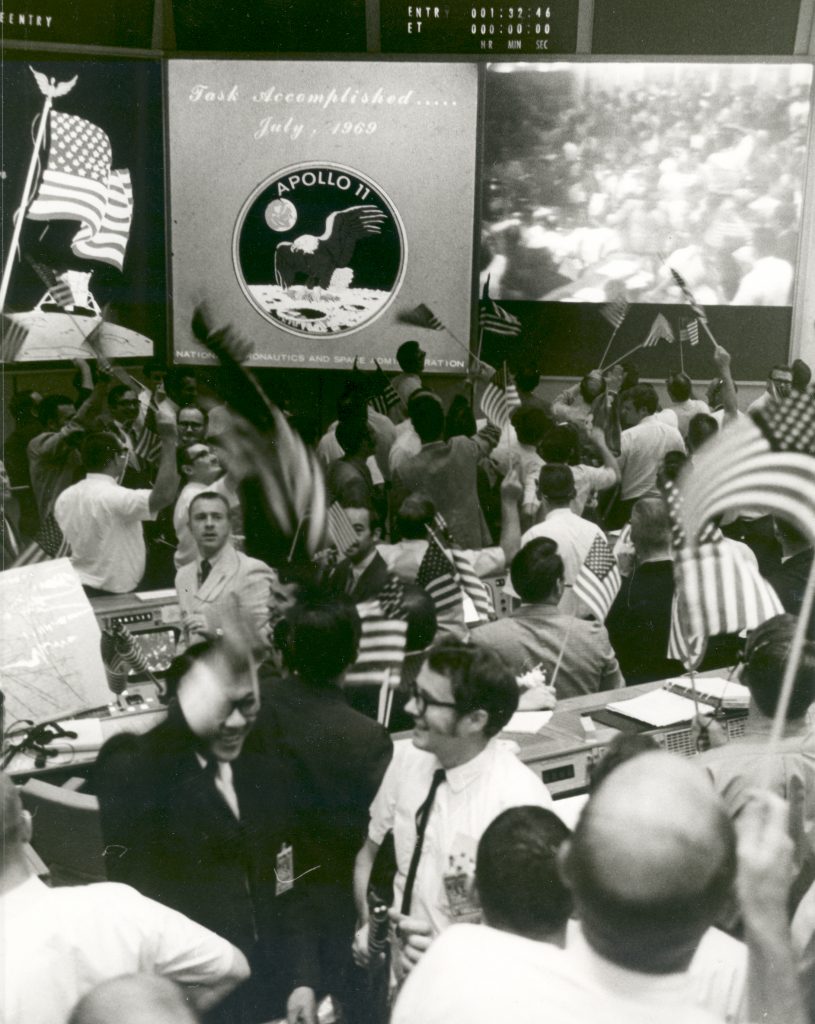
In the Mission Operations Control Room, flight controllers applaud the splashdown and success of the Apollo 11 lunar mission.
Source: NASA
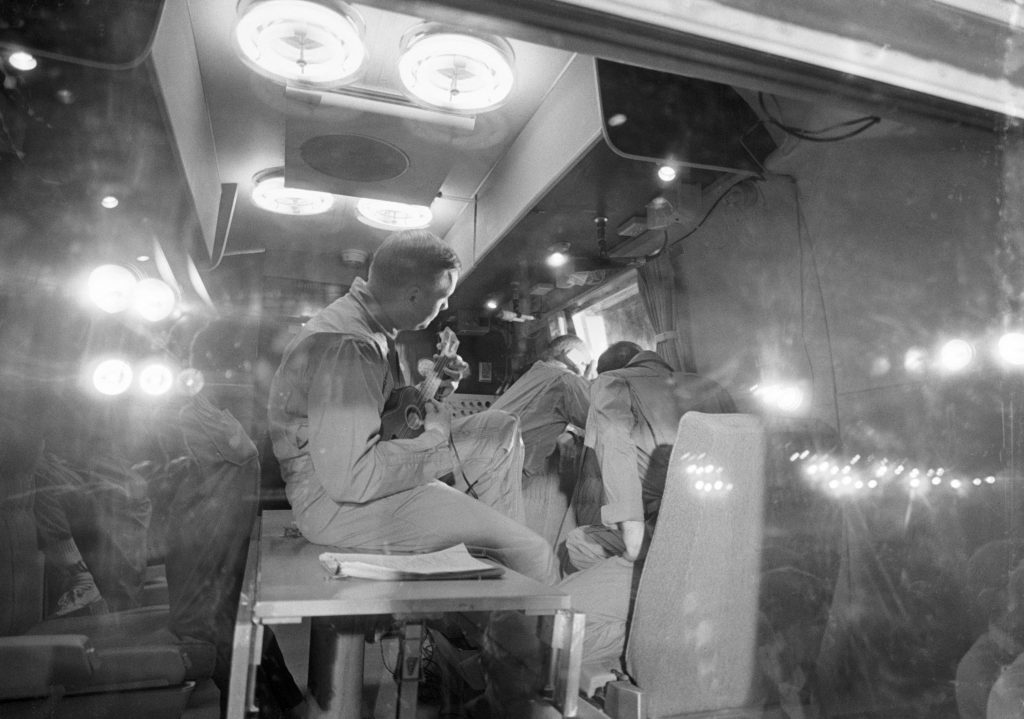
Source: NASA
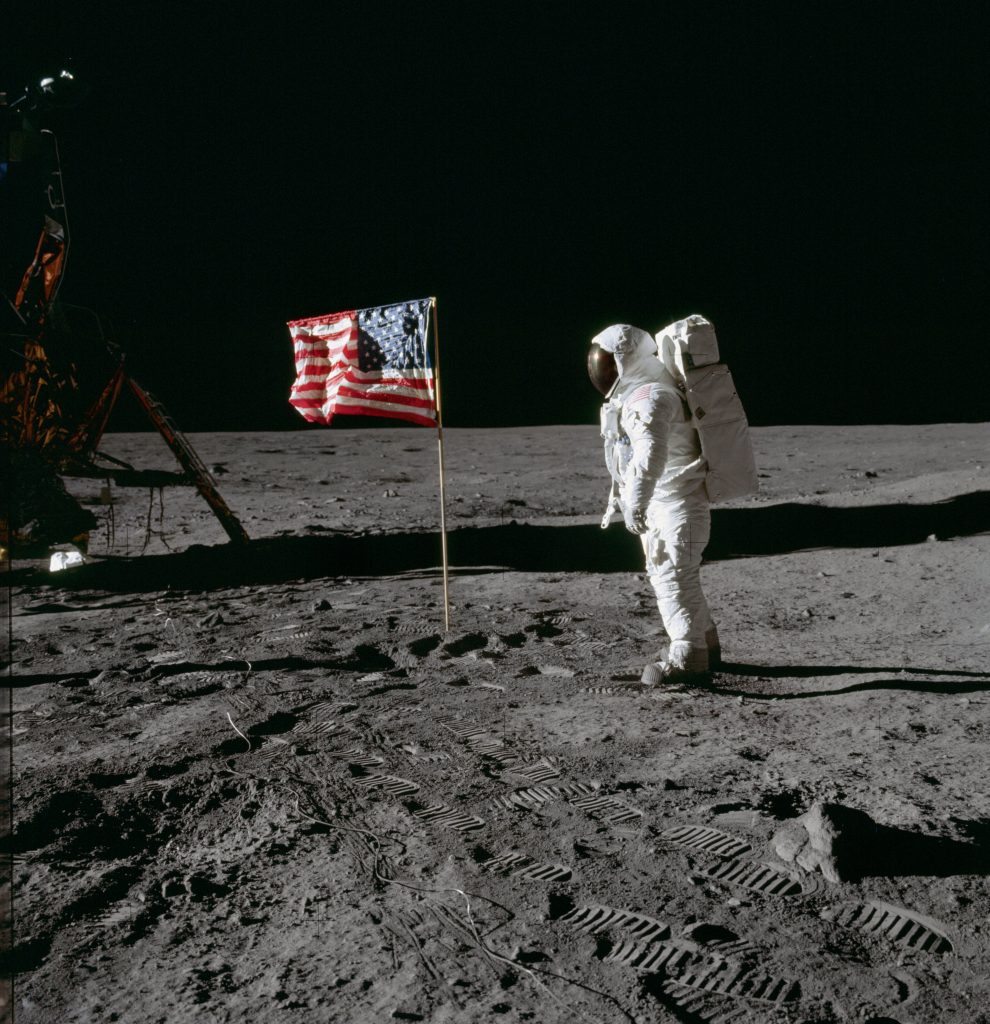
Source: NASA

